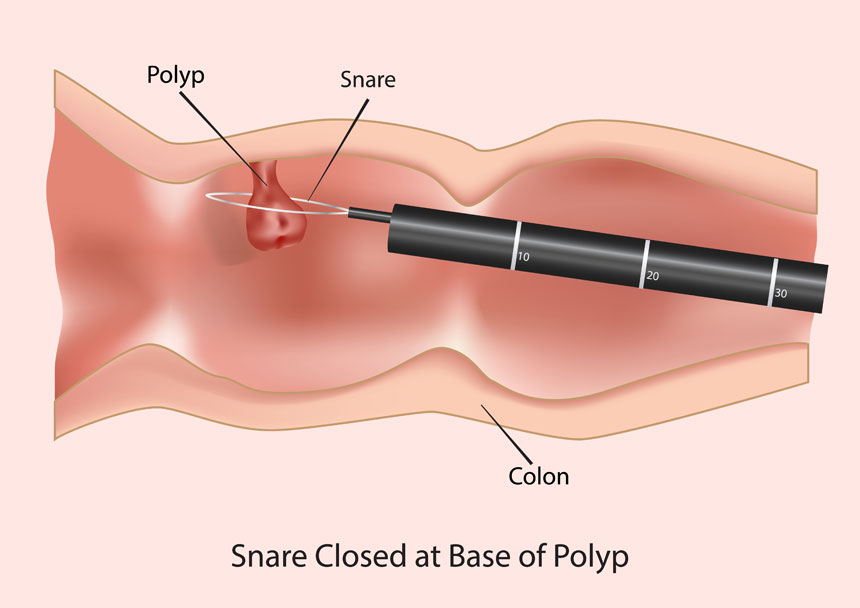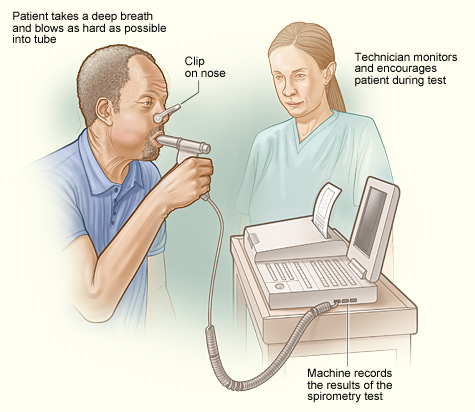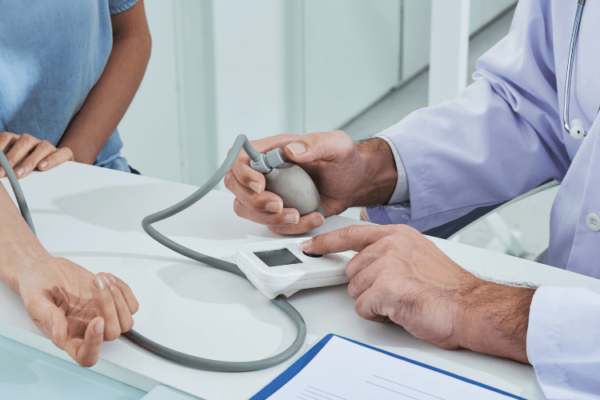
02 Apr Essential Screenings for Men: Top 5 Diseases You Can Prevent with Early Intervention
Essential Screenings for Men: Top 5 Diseases You Can Prevent with Early Intervention
By Island Hospital | April 2, 2025 6:51:41 PM
Medical Reviewer: Medical Officer
Early health screenings are a crucial component of a proactive approach to healthcare, playing a pivotal role in disease prevention and your overall well-being.
It helps you identify and address health concerns before they escalate into serious illnesses, ultimately improving health outcomes and quality of life.
Unfortunately, many men neglect their health until symptoms manifest, often missing the opportunity for early interventions to impact the course of a disease significantly.
This delay in seeking medical attention can have serious consequences as many diseases in their early stages often present subtle or no noticeable symptoms.
In this article, we’ll cover the most important health screenings for men and highlight five key diseases that benefit significantly from early detection.
Detailed Disease Breakdown
Early detection is imperative to a successful treatment for any type of disease. Here are examples of some screenings for men that are a good starting point:
1. Hypertension
In Malaysia, 30% of adults aged 18 and above had hypertension in a 2019 survey conducted by NHMS. While this figure includes both men and women, it gives a general idea of the prevalence in the adult population.
Those with normal blood pressure (below 120/80) should have it checked at least every two years. Healthcare professionals usually recommend annual screenings for men with elevated blood pressure or those with increased risk factors for cardiovascular disease, such as smoking or diabetes.
These regular check-ups are critical, as uncontrolled hypertension significantly raises the risk of life-threatening conditions such as:
- Coronary artery disease
- Heart failure
- Kidney failure
- Stroke
During these screenings, healthcare providers can evaluate key health markers using standard blood pressure tests, such as cholesterol and blood sugar levels, which are vital indicators of cardiovascular risk.
Besides the standard blood pressure test, other additional approaches to screenings for hypertension include:
- Advanced Cardiovascular Screening
This may involve additional tests such as an electrocardiogram (ECG) to assess heart function, an echocardiogram to evaluate heart structure, or a stress test to measure how the heart performs under physical exertion. - Body Mass Index (BMI) Calculation
Obesity is a significant risk factor for hypertension. Calculating BMI helps determine if weight management is needed. - Kidney Function Tests
Since hypertension can damage the kidneys, tests like serum creatinine and urine albumin-to-creatinine ratio (ACR) may be included to assess kidney health. - Lipid Profile Testing
This measures cholesterol and triglyceride levels, which are important indicators of cardiovascular health. - Diabetes Screening
Your healthcare professional may recommend blood sugar tests like fasting glucose or HbA1c since diabetes and hypertension often coexist.
Healthcare professionals can also offer personalized advice on maintaining a healthy weight for individuals with hypertension by introducing a heart-healthy diet.
2. Prostate Cancer
Ranked as the third most common cancer among men in Malaysia, prostate cancer accounts for approximately 6.8% of all male cancers in the country.
Healthcare professionals diagnose the majority of cases in men aged 60 and above, but younger men, particularly those with a family history of prostate cancer or specific genetic factors, are also at risk.
Studies have shown that Chinese men in Malaysia have a higher incidence of prostate cancer compared to Malay and Indian men.
Early screening is imperative as early stages show no symptoms, and many cases are diagnosed at advanced stages when treatment options are more limited and outcomes are less favourable.
Your healthcare professional screens individuals seeking to test for prostate cancer using a:
- Multi Cancer Early Detection Test
A multi-cancer detection test provided by your healthcare professional allows you to detect multiple cancer types ranging from reproductive, digestive, respiratory, and many more.
Island Hospital provides a comprehensive test that helps you detect over 110 cancers, including prostate cancer. (Assessment by our Consultant is required.)
- PSA (Prostate-Specific Antigen) test
This test measures the level of prostate-specific antigen, a protein produced by the prostate gland, in the blood.
High PSA levels can indicate prostate cancer, though benign prostatic hyperplasia (BPH) or prostatitis can also cause them.
- Digital Rectal Exam (DRE)
Often performed alongside the PSA test, healthcare professionals conduct DRE to physically examine the prostate gland for abnormalities such as lumps, hardness, or enlargement.
This procedure is common, especially for men with symptoms like urinary difficulties or those at higher risk.
- Advanced Diagnostic Tests
Examples of diagnostic tests that are required if further screenings are needed include MRI Fusion Biopsy, Transrectal Ultrasound (TRUS), or biopsies.
“Prostate cancer is only common in older men” is a dangerous misconception. Equip yourself to address these common myths with some essential facts about prostate cancer you need to know today.
3. Colorectal Cancer
Colorectal cancer is one of the most common cancers worldwide and a leading cause of cancer-related deaths. However, it is also one of the most preventable and treatable cancers when detected early.
Recent trends show a concerning rise in cases among younger adults, highlighting the need for increased awareness and early detection across all age groups.
Colorectal cancer often develops slowly over many years, typically beginning as benign growths called polyps in the inner lining of the colon or rectum. Not all polyps become cancerous, but some can transform into cancer if left undetected and untreated.
Here are the common types of health screenings for colorectal cancer:
-
- Colonoscopy

The procedure involves inserting a flexible tube with a camera (colonoscope) into the rectum to examine the entire colon and rectum for any suspicious growths that can be removed or biopsied.
Gastroenterologists highly recommend earlier and more frequent screenings for those with a family history of colorectal cancer, genetic predispositions, or inflammatory bowel disease (IBD).
- Fecal Immunochemical Test (FIT)
FIT is a non-invasive test that detects hidden blood in the stool, which can be an early sign of colorectal cancer or precancerous polyps. - Stool DNA Test (Cologuard)
This test analyzes stool samples for DNA changes and blood that may indicate colorectal cancer or precancerous polyps.
- Colonoscopy
Research has shown that healthy eating habits can significantly lower the likelihood of developing colon cancer.
Adopting healthy eating habits along with a cancer-fighting diet is one of the most effective and well-documented ways to reduce your risk of developing colon cancer.
To kickstart your journey toward a healthier lifestyle, consider consulting with a professional dietitian as they can provide personalized dietary assessments and tailor-made nutrition plans aligning with your unique health goals, preferences, and needs.
4. Chronic Lower Respiratory Diseases
Chronic Lower Respiratory Diseases (CLRD), which include conditions like chronic obstructive pulmonary disease (COPD), asthma, and chronic bronchitis, are a significant health concern for men in Malaysia.
Unhealthy lifestyle factors, including smoking, poor diet, and lack of physical activity, often link to these diseases.
Embracing a healthy lifestyle by quitting smoking, eating a balanced diet, staying active, and avoiding environmental pollutants is one of the most effective ways to reduce the risk of CLRD among Malaysian men.
On the other hand, pairing these habits with regular medical check-ups further enhances the chances of early detection and effective management:
-
- Spirometry (Lung Function Test)

Spirometry is the most common test used to assess lung function. It measures how much air you can inhale and exhale and how quickly you can exhale. This test helps diagnose conditions like COPD and asthma.
- Arterial Blood Gas (ABG) Test
ABG test measures the levels of oxygen and carbon dioxide in your blood and your blood’s pH balance. It helps assess how well your lungs function and whether they exchange oxygen and carbon dioxide effectively. - High-Resolution Computed Tomography (HRCT) Scan
An HRCT scan provides detailed images of the lungs and airways, allowing doctors to detect structural abnormalities, inflammation, or scarring. - Other Related Screenings
- Allergy Testing
- Complete Blood Count (CBC)
- Occupational Health Screenings
- Spirometry (Lung Function Test)
Exposure to dust, chemicals, or fumes at work raises your risk of CLRD. Discover how an allergy test can help identify triggers for respiratory conditions and learn how to prepare for it.
5. Depression
Stigma and societal expectations often cause people to overlook depression, a significant mental health concern for men in Malaysia.
Many men feel pressured to appear strong and self-reliant, preventing them from seeking help or acknowledging their struggles.
This reluctance to address mental health issues can lead to untreated depression, which not only affects emotional well-being but also impacts physical health, relationships, and overall quality of life.
Just as regular health screenings are vital for detecting physical illnesses like colon cancer, mental health screenings are essential for identifying depression early.
One can consider mental health check-ups such as:
- Psychological Assessments
A comprehensive evaluation is conducted by a mental health professional, such as a psychologist or psychiatrist, to diagnose depression or other mental health conditions. - Cognitive Behavioral Therapy (CBT)
CBT is one of the most widely used and evidence-based forms of psychotherapy for treating mental health conditions, including depression, anxiety, stress, and other emotional challenges.
It focuses on identifying and changing negative thought patterns and behaviors that contribute to mental health issues. For men in Malaysia, where stigma around mental health often prevents seeking help, CBT offers a structured, practical, and effective approach to improving mental well-being.
Remember, mental health is just as important as physical health, and seeking help is a sign of strength, not weakness.
Your Health Can’t Wait
Take 30 minutes to schedule a screening—it could save your life. If your body is telling you something, it’s time to listen to it.
Prevention is the best medicine, and at Island Hospital, we provide just that with our range of tailored health screening packages.
Experience seamless, stress-free health screenings at our state-of-the-art 25,000 sq ft centre—offering one-stop diagnostics, fast results, and expert care, all designed with your convenience in mind.

We’re offering our comprehensive Plus Package for Men at only RM2,499 – giving you a complete head-to-toe health assessment for peace of mind.
Our package features vital health screenings, including Cardiovascular Assessment, Cancer Markers, Radiological Screening, Stool Assessment, Kidney Function Test, and much more.
What’s Included in Your Screening Experience:
✔ Physical examination
✔ Complete medical report
✔ Consultation by Health Screening Physician
✔ Light refreshments
✔ Exclusive Island Hospital woven bag
FAQ
1. What is the biggest health issue for men?
Heart disease is the biggest health issue for men in Malaysia. It is the leading cause of death for men in the country, accounting for a significant proportion of male deaths.
2. At what age should men get screened?
The age at which men should begin getting screened for various health conditions depends on several factors, including their individual risk factors, family history, and overall health. Here are some general guidelines:
| Hypertension | |
| Cholesterol | |
| Diabetes | |
| Prostate cancer | |
| Colorectal Cancer |
3. How often should men get a physical?
The frequency with which men should get a physical exam depends on several factors, such as their age, overall health, and risk factors for certain health conditions. The following exposes some general guidelines for you:
- Men under 50: Men under 50 who are in good health and have no risk factors for chronic diseases may only need a physical exam every 2-3 years.
- Men over 50: Men over 50 should get a physical exam every year.
- Men with chronic health conditions or risk factors: Men with chronic health conditions such as diabetes, heart disease, or cancer, or those with risk factors for these conditions, such as obesity, smoking, or a family history of the disease, may need to get a physical exam more often.








